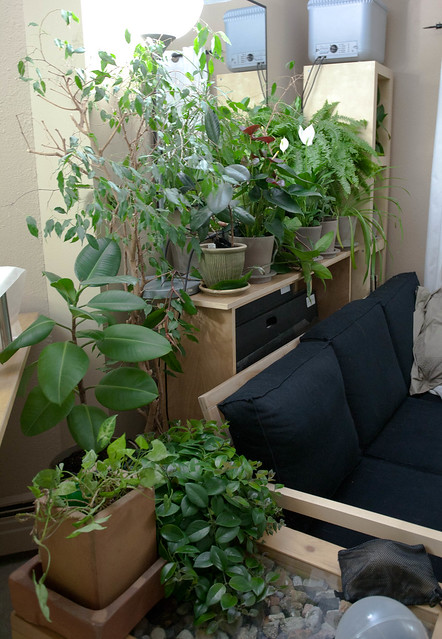Systems
A recurring issue for me is the need for a place to offload the whirl of ideas that fills my head. It can get quite overwhelming, since it is tied to decisions about what to follow up on and a mixture of should-dos and could-dos.
When I was an undergrad I used a Palm program (I can’t remember the name anymore). It was great for juggling class deadlines. I tried using it as a grad student but it didn’t work as well for that. The nature of deadlines changes so much, and the projects turn into these flexible things that can infinitely branch into different areas of research, different paper deadlines, different thoughts to follow up on.
I also, in undergrad, started using Getting Things Done. Now I use a slightly modified version of that with OmniFocus. Most of the time when I’m feeling overwhelmed by my todo list it’s because I either haven’t been putting things into the inbox, or haven’t been reliably clearing things out (In David Allen’s terms, I’ve stopped being able to trust the system and so it all stays in my head).
It’s still not a perfect fit for thesis work, because I haven’t figured out a good way of breaking the proposal down. There are a long list of things I could do (hunt down references, write precis for the lit review, make diagrams, write any portion of the thing itself) and they are all variable length. I think GTD works best when you have countable finite tasks for the projects you’re doing.
I suppose I’m also using a kind of First Things First approach, in that I use OmniFocus for offloading lists of pesky things, but in picking what to do each day I look at what is most important rather than urgent. Which is how thesis work makes the cut without being exhaustively enumerated in OF.
And GTD is way too much overhead for joint projects with Joel. Joel does not have the same intense need for a system—he manages to compartmentalize to-dos better than I do, and tends to just do the thing to get it out of his head. He still (I think) needs some kind of system, depending on how many projects he‚Äôs juggling, but he‚Äôs more of a visual do-er than compulsive organizer. So we haven‚Äôt exactly found the best solution for our joint projects, although the whiteboard and calendar figure hugely in our current work.
If anyone has suggestions for other todo or idea management systems, I’m always interested. Go productivity p0rn.












